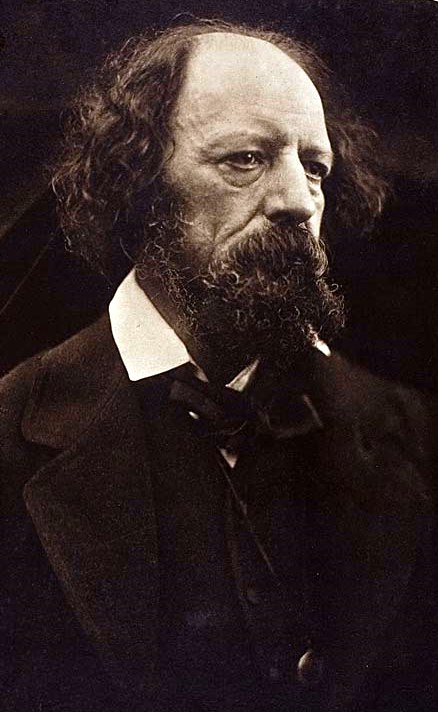Alfred Tennyson Frases famosas
“O conhecimento vem e vai, mas a sabedoria permanece.”
Variante: O conhecimento chega, mas a sabedoria demora.
“Na primavera, a imaginação de um jovem volta-se, ligeira, para pensamentos de amor.”
In the Spring a young man's fancy lightly turns to thoughts of love.
Locksley Hall (1842)
tradução conforme citado em Revista Caras http://www.caras.com.br, Edição 674.
Alfred Tennyson frases e citações
“Sou parte de tudo que encontrei.”
I am a part of everything with which I come in contact
citado em "Report of the Minister of Education" - Página 75, de Ontario Dept. of Education - Publicado por Ontario Education Dept., 1887
“Não tem amigos o homem que nunca teve inimigos.”
He makes no friend who never made a foe
Idylls of the King - Página 179 http://books.google.com/books?id=R8ssIlkxZDQC&pg=PA179, de Alfred Tennyson Tennyson, Alfred Tennyson - Publicado por Forgotten Books, 1862, ISBN 1605064807, 9781605064802 - 261 páginas
“Nossos espíritos se precipitaram um para o outro ao tocar dos lábios.”
our spirits rush'd together at the touching of the lips.
Poems by Alfred Tennyson: In 2 Volumes - Volume 2 - Página 37 https://books.google.com.br/books?id=QalRAAAAcAAJ&pg=PA37, Alfred Tennyson - Ticknor & Comp., 1849
Alfred Tennyson: Frases em inglês
The Poet (1830)
Contexto: There was no blood upon her maiden robes
Sunn'd by those orient skies;
But round about the circles of the globes
Of her keen
And in her raiment's hem was traced in flame
WISDOM, a name to shake
All evil dreams of power — a sacred name.
And when she spake,
Her words did gather thunder as they ran,
And as the lightning to the thunder
Which follows it, riving the spirit of man,
Making earth wonder,
So was their meaning to her words. No sword
Of wrath her right arm whirl'd,
But one poor poet's scroll, and with his word
She shook the world.
" A Dream of Fair Women http://home.att.net/%7ETennysonPoetry/dfw.htm", st. 2 (1832)
“Old men must die, or the world would grow mouldy, would only breed the past again.”
Becket, Prologue, reported in Bartlett's Familiar Quotations, 10th ed. (1919)
"Come not, when I am dead" (1850)
"The Miller's Daughter" (1832)
Aylmer's Field (1864); reported in Bartlett's Familiar Quotations, 10th ed. (1919)
“So dear a life your arms enfold,
Whose crying is a cry for gold.”
The Daisy, Stanza 24; reported in Bartlett's Familiar Quotations, 10th ed. (1919)
“A simple maiden in her flower
Is worth a hundred coats-of-arms.”
Stanza 2
Lady Clara Vere de Vere (1832)
The Flower; reported in Bartlett's Familiar Quotations, 10th ed. (1919)
Stanza 63
Locksley Hall Sixty Years After (1886)
“Is there evil but on earth? or pain in every peopled sphere?”
Fonte: Locksley Hall Sixty Years After (1886), Line 197
" Sir Galahad http://home.att.net/%7ETennysonPoetry/sg.htm", st. 1 (1842)
Quoted in A Dictionary of Quotations, in Most Frequent Use by D.E. Macdonnel (1809) translated from French: Le bonheur de l'homme en cette vi ne consiste pas á être sans passions: il consiste à en être le maître.
Misattributed
Tiresias, reported in Bartlett's Familiar Quotations, 10th ed. (1919)
